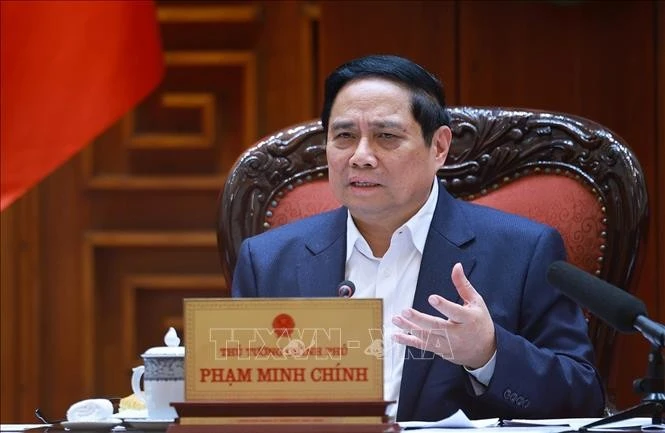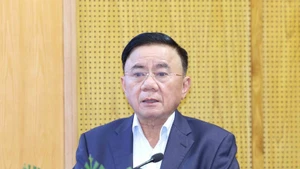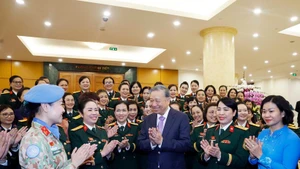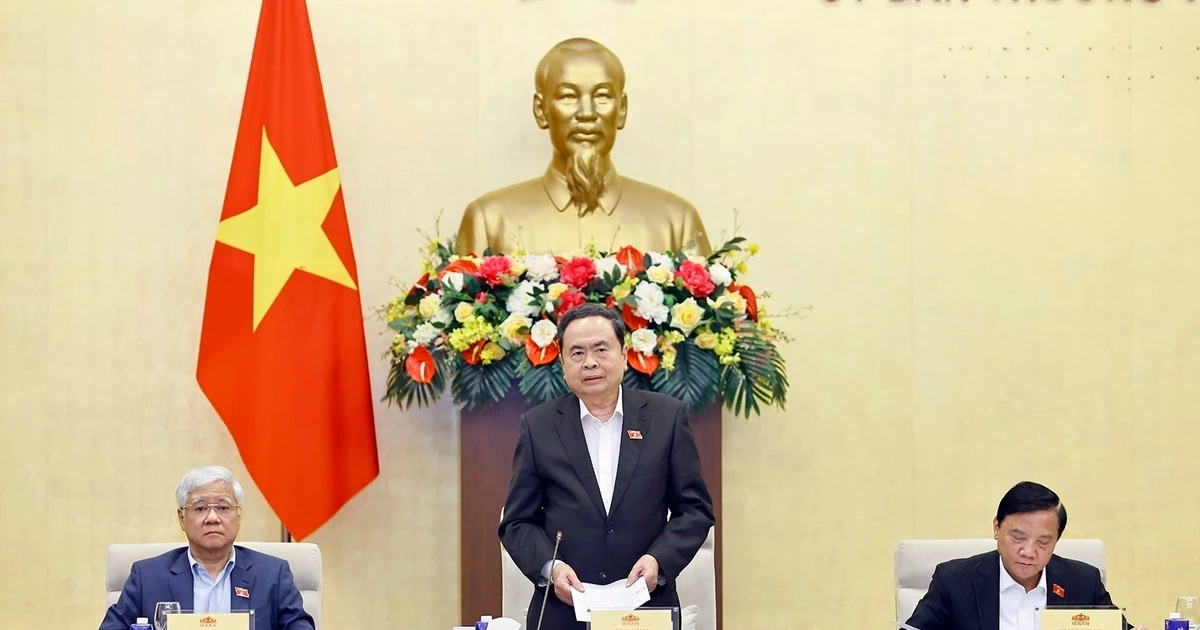In the context of the country’s gradual and profound integration into the world, prosperity is measured not only through economic indicators but also through fairness, inclusiveness, and equality in the enjoyment of development achievements. The Party has emphasised the crucial role of combining economic growth with the assurance of social welfare, environmental protection, and political stability. This is not merely a political task but also a moral responsibility, reflecting the Party’s companionship with the people in the nation-building journey.
In the process of reform and development, prosperity is not simply economic wealth but also encompasses spiritual, social, and cultural values, in which every citizen has the conditions for comprehensive development. This means ensuring sufficient material life, access to basic services such as healthcare and education, and equal opportunities to participate in economic, cultural, and social activities.
Remaining difficulties and challenges
Viet Nam is currently one of the fastest-growing economies in Southeast Asia, with an average GDP growth rate of about 6–7% per year in the pre-COVID-19 period.
In 2023, Viet Nam’s GDP reached approximately 411.2 billion USD, ranking fourth in ASEAN, and per capita income was estimated at around 4,110 USD. With the aim to raise living standards and incomes, Viet Nam has implemented numerous policies and programmes that have delivered positive outcomes. The National Target Programme on Sustainable Poverty Reduction has brought the poverty rate down to a record low, with disadvantaged regions such as the Central Highlands and the Northwest having witnessed significant improvements.
Thanks to the new rural development programme, many communes now have rural roads, standardised schools, and improved healthcare systems. This has narrowed the development gap between rural and urban areas. Policies supporting disadvantaged regions have enabled millions of people to access preferential loans, land, and vocational training, thereby improving livelihoods and incomes.
Alongside socio-economic development policies, the streamlining of the political system in recent years has brought significant results, directly contributing to the goal of improving people’s lives.
Between 2019 and 2024 alone, the number of district-level administrative units nationwide decreased from 705 to 696, and commune-level units from 10,598 to 10,035. Since June 2025, under Resolution No. 202/2025/QH15, the country now has only 34 provincial-level administrative units (28 provinces and six centrally run cities), and officially shifted to a two-tier local government model starting July 1, 2025.
At the central level, during the 2021–2026 tenure, the government has sharply reduced its organisational structure: from 14 ministries and three ministerial-level agencies, all 13 general departments were dissolved, along with over 3,300 sub-departments (a 91.7% reduction). More than 84,000 payroll positions were cut between 2015 and 2023. As a result, the state budget has reduced costs by about 262.5 trillion VND annually (equivalent to 3.8% of GDP). These resources are now prioritised for reinvestment in social security, education, and healthcare.
The tuition fee exemption and reduction policy in 2025, with a budget of 24 trillion VND, has brought practical benefits to over 17 million students. Health insurance coverage is targeting 98–99% of the population, and the goal of universal free healthcare is being gradually realised.
These reforms not only enhance the efficiency of national governance but, more importantly, create conditions for all citizens to enjoy the fruits of development fairly, moving closer to the goals set by the 13th National Party Congress. However, economic growth remains uneven, with income disparities across regions and social groups. Remote, isolated, and ethnic minority areas still face great challenges, with poverty rates far above the national average.
Ensuring fairness and sustainability
In the context of international economic integration, Viet Nam faces both opportunities and challenges in achieving prosperity. The socialist-oriented market economy has facilitated economic growth and rising incomes but also requires effective policies to ensure fairness and sustainability.
The Party affirms that fairness does not mean an equal division of all resources, but rather that everyone has equal opportunities to access development resources, ensuring that all citizens benefit from the achievements of growth. This includes fairness in opportunities for education, employment, healthcare, and participation in social activities.
The Party also attaches particular importance to reducing inequalities across regions, social classes, and gender. Fairness must be ensured not only in access to resources but also in enjoying basic services and social benefits. The goal is to narrow the gap between rural and urban, mountainous and lowland areas, while safeguarding and supporting vulnerable groups. Equality among social classes, ethnic groups, and genders is a key criterion in measuring social progress. In Viet Nam’s context, equality also extends to the partnership among state-owned, private, and foreign-invested economic sectors. An equal environment provides motivation for individuals and organisations to maximise their potential and contribute to national development.
Sustainable development is a strategic orientation running throughout the process of nation-building and development. The Communist Party of Viet Nam has affirmed that sustainable development is not only about economic growth but also encompasses social, cultural, and environmental sustainability.
In economics, sustainable development requires a balance between growth and natural resource and environmental protection. Policies must not only improve productivity and efficiency but also ensure sufficient resources for future generations.
Socially, sustainable development demands building a harmonious society without conflicts of interest, ensuring human rights, and fostering national unity.
Education, healthcare, and social security are top priorities for improving quality of life and creating the conditions for sustainable development. Sustainable development also requires long-term strategies to protect ecosystems, mitigate climate change impacts, and use natural resources efficiently. The Party stresses that environmental protection is not only the responsibility of the state but also an obligation of the whole society, with people playing the central role.
Building a prosperous society
To implement these principles, the Party and state must synchronously carry out policy measures, focusing on improving the legal system, strengthening state management, and promoting public participation in socio-economic activities. Building a prosperous society requires not only financial resources but also unity and determination of the people, as well as the Party’s sound and wise leadership.
The 13th National Congress of the Communist Party of Viet Nam identified one of the central goals of national development as building a fair, democratic, and civilised society, in which shared prosperity and wealth are the fundamental foundation. Sustainable development cannot be separated from ensuring the rights and welfare of all citizens, for only when all social strata advance together can the country achieve comprehensive, long-term, and harmonious growth.
The 13th Congress stressed that economic growth must go hand in hand with social progress and fairness, regarding this as a decisive factor in maintaining political and social stability. When all groups of people, from rural to urban, from mountainous to lowland areas, benefit from economic development, it will lay the foundation for a harmonious and stable society.
In addition, it is necessary to enhance the efficiency of economic development and the use of resources. A society in which everyone has the opportunity to engage in economic development will optimise resource utilisation. When all citizens, from ordinary workers to entrepreneurs, are given the conditions to develop their abilities, the economy will become more dynamic and efficient.
The 13th Congress affirmed the role of the state in promoting social fairness through macroeconomic policies. For example, investing in infrastructure in disadvantaged areas not only provides development opportunities for those regions but also enhances connectivity, enabling the entire economy to function more smoothly. In this way, the nation’s resources are not wasted, while labour productivity improves, contributing to sustainable growth.
Ensuring shared prosperity and wealth is also an important factor in strengthening the great national unity bloc. The 13th National Party Congress emphasised that the country’s strength lies in the unity and consensus of the entire people. A society in which everyone feels respected, has their basic rights guaranteed, and is given opportunities for development will foster a united community working together to build the nation.
The 13th National Party Congress set out the strategic orientation for Viet Nam’s development in the 2021–2030 period, with a vision to 2045. These strategic orientations serve as the guiding compass for realising the goal of turning Viet Nam into a developed, high-income country, fulfilling the aspirations to become a wealthy people, a strong nation, and a democratic, fair, and civilised society.
The above strategic orientations of the 13th Congress not only reflect the Party’s long-term vision but also affirm its determination to achieve sustainable, modern, and internationally integrated development. This is a crucial foundation for realising the aspiration of “a wealthy people, a strong nation, democracy, fairness, and civilisation.”
However, to achieve this goal, stronger reforms are still needed to address shortcomings in resource allocation, income distribution, and development opportunities. Ensuring social fairness, leaving no one behind, and mobilising the strength of the entire community, from remote areas to major cities, will be the key for Viet Nam to reach a prosperous future, where all citizens benefit from the shared achievements of national development.
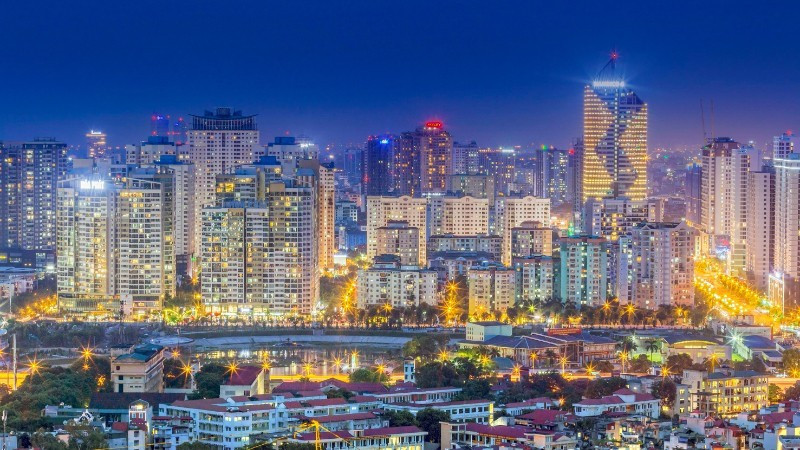
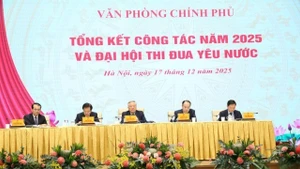
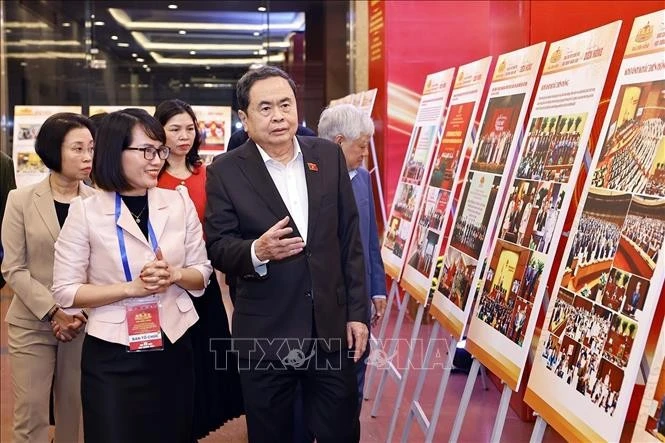
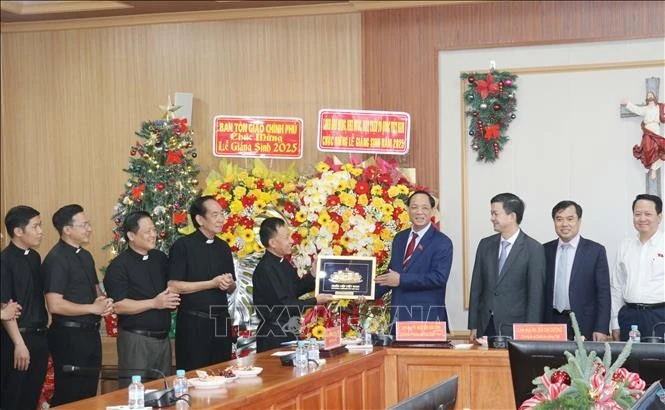
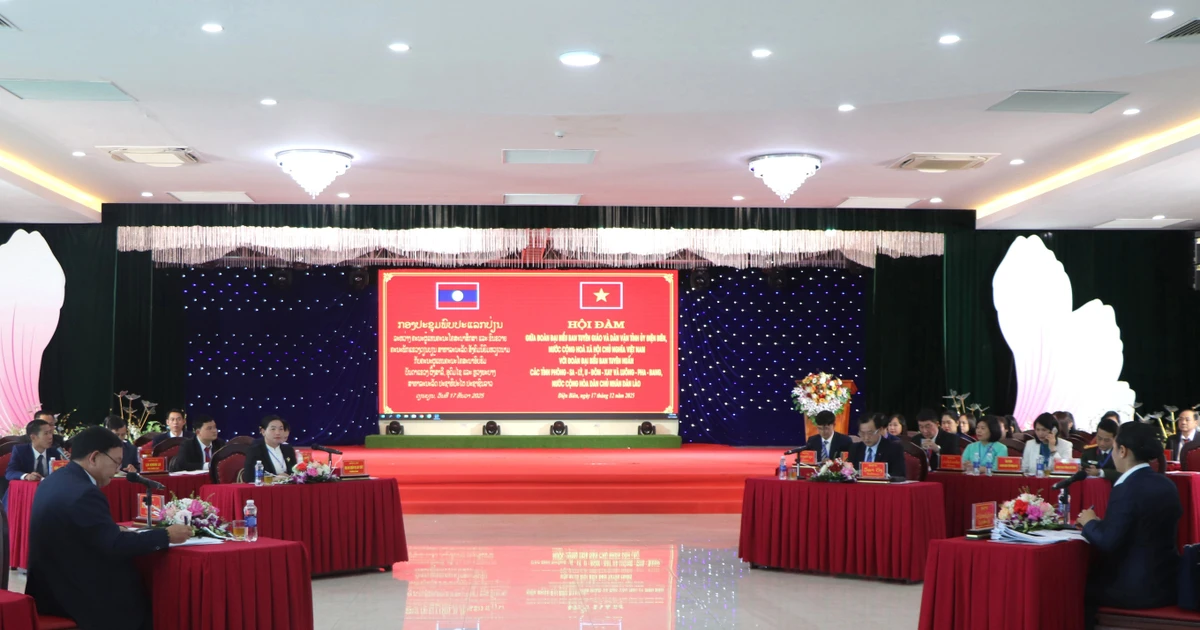
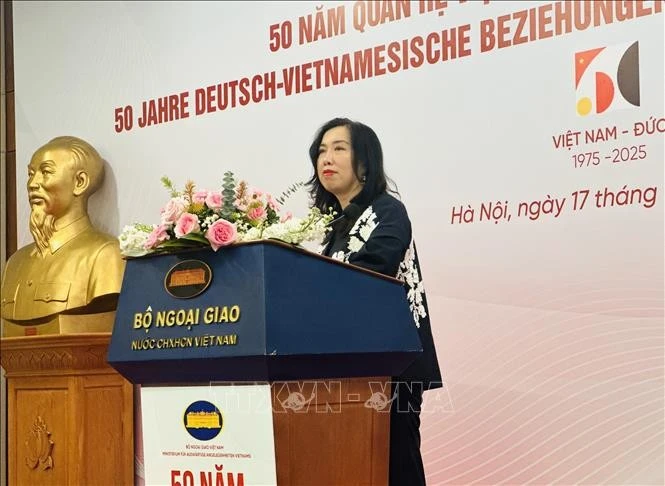
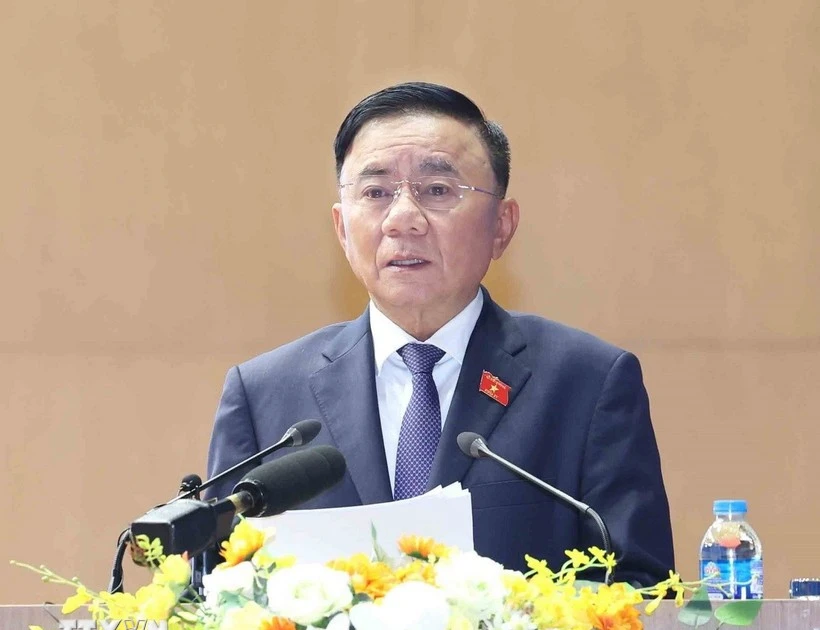

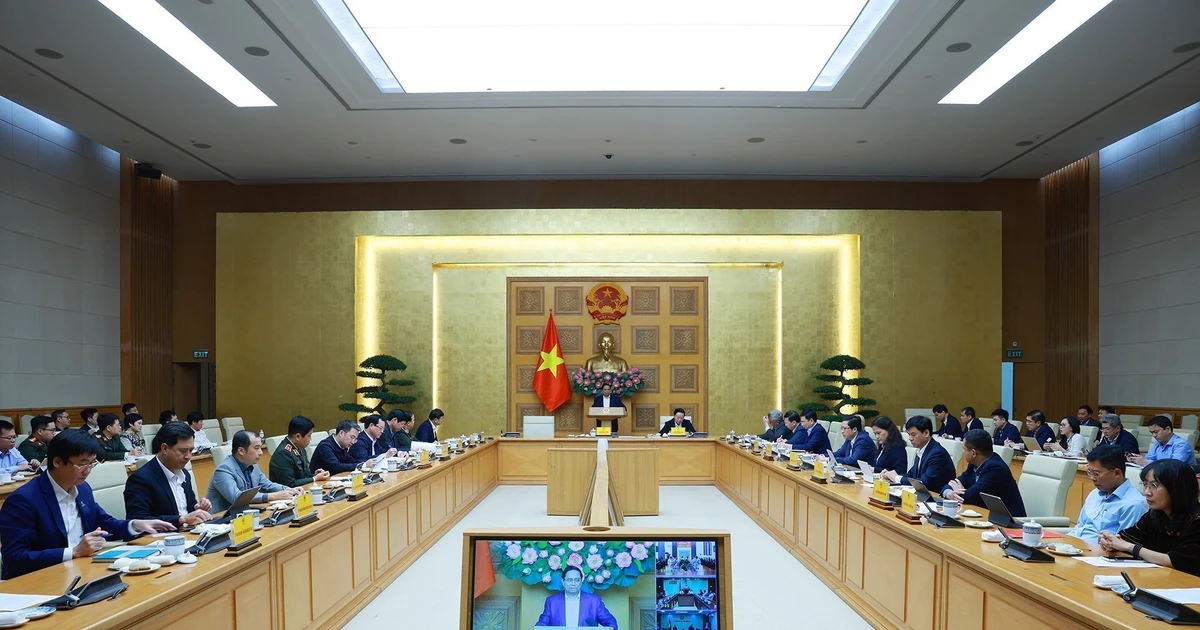
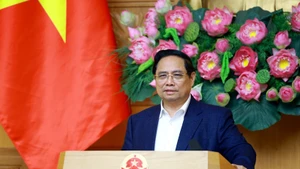
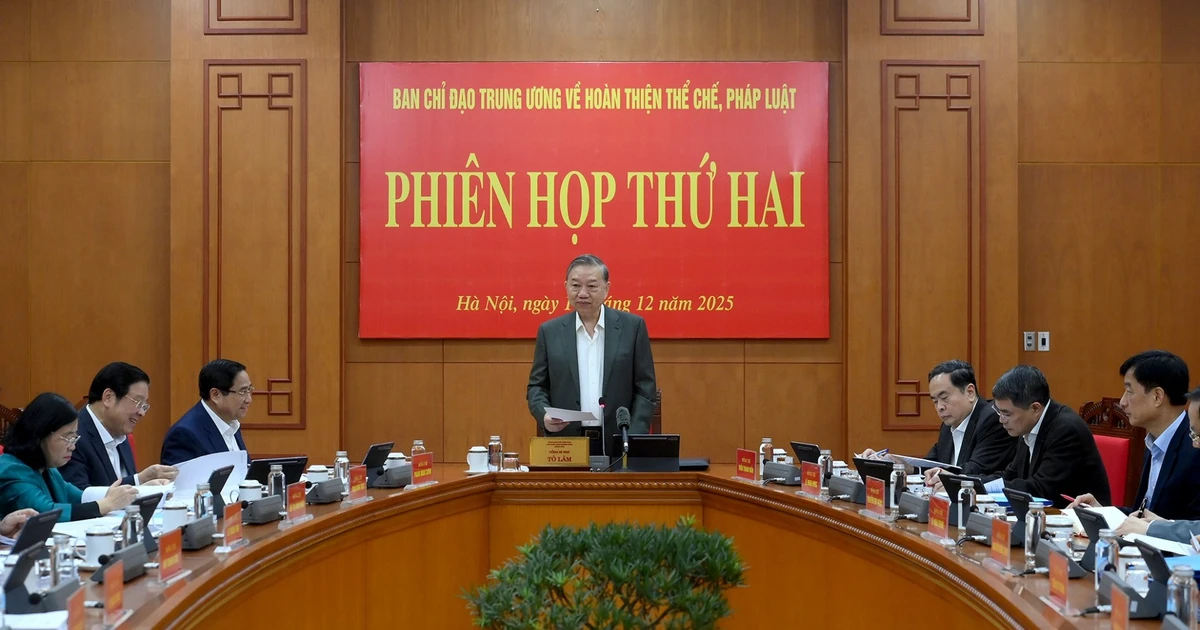
![[In Pictures] President Luong Cuong attends 2025 National Political-Military Conference](https://cdn.nhandan.vn/images/22f099ca8bc7ae81aa2a8d3416a84bf8f1fb70d71449a5e59c429f35d62edd7b904ff5e5499a5122b7234d367da37c7e97d67b378db0ac220574640b741d3d71/ndo_br_1.jpg.webp)
